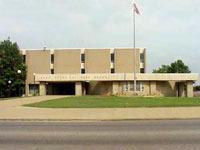He Said, She Said Journalism Short Changes the Debate on New Convention Center It's a common enough lament that national reporters who strive to be "fair and balanced" do a disservice to the truth when they serve as stenographers for both sides of an argument, juxtaposing what one side says against the other, without providing any context to either side's remarks. The problem, of course, is that these reporters don't bother to fact-check their sources or to provide their readers with, well, real reporting, which involves asking follow up questions and placing each side's answers into a bigger picture. Instead, the reporters merely provide a forum for both sides and allow misleading assertions to stand uninterrogated, until eventually these assertions, in all their falsehood, gain traction as accepted fact and appear in story after story the the background narrative on the problem being covered. With this kind of reporting, the side that repeats its untruth most often and with the most volume wins, and all of the context that the opposition would attempt to provide to debunk this untruth is merely, well, so much effete hair-splitting. For a primer on the perils of this kind of reporting on a local level, check out this Plain Dealer article on the dearth of bookings at the Cleveland Convention Center. While the article does allude to several reasons against building a new center to make up for this lack of bookings, including an oft cited Brookings Institute study that advises cities against such development, it also repeats without follow up or context some misleading claims from those in favor of the convention center:
"At least a dozen groups considered Cleveland for meetings in 2005-09 but cited the center as their main reason for going elsewhere. The potential business represented nearly 44,000 hotel room nights and an economic impact of $36 million, according to the visitors bureau. "Many more groups never consider Cleveland because they don't like the center, Brewer said." "A PricewaterhouseCoopers report completed last year for the Convention Facilities Authority predicts that the number of conventions and trade shows could decline by 50 percent by 2008 if the city doesn't build a more competitive center."OK, here are just a few questions that Sarah Hollander, the Plain Dealer reporter, might have asked, but (apparently) didn't: 1) How reliable is the visitors bureau's tracking of "reasons for rejecting the center?" Do they have a formal method of measuring this in place or is their account of the "at least a dozen groups" who opted out of hosting their conventions in Cleveland purely anecdotal? And if these groups cite the condition of the center as their main reason for not choosing Cleveland as their convention site, then what is it about the center that doesn't meet their needs? Is it simply a lack of electrical outlets? a lack of net access? etc.--i.e. are these "defects" ones that must be overcome with a new center or ones that might be dealt with rather cheaply, through renovation? 2) What exactly does the loss of $36 million in convention revenues over four years (2005-09) represent to the local economy? $9 million a year sounds like a reasonably large amount of money in terms of how the article puts it, but when one considers that the city's new red light cameras are bringing in a minimum of $230,000 per month (or at this rate roughly $2.76 million per year) directly into the the city coffers, it doesn't seem to be that much of a revenue loss, and certainly not enough, perhaps, to justify going to the tax payers to provide Forest City with another lucrative Cleveland project. 3) Who commissioned the PriceWaterhouseCoopers report? And how much of the drop off in convention business that it cites is the result of factors that have nothing to do with the quality of Cleveland's facilities, including big gains for other markets like Vegas and Orlando (which are taking away business from the likes of Great Lakes city Chicago) and a decline overall in businesses' desire to participate in such get-togethers? Had the reporter asked these questions (and hopefully she and other reporters will in the future), maybe our decision makers, like Mayor Frank Jackson, who supports a new center, would have the information they need to see that a new convention center will be yet another band-aid applied to the wrong area of our wounded economy.


